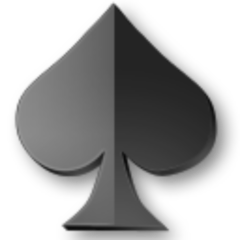Poker is a card game where players compete against one another to make the best hand. The game has many variants, but the basic structure remains the same: each player places an ante (the amount varies by game), then bets into a pot in the center of the table. The highest-valued hand wins the pot. Players may raise and call as they please. Some players also protect their hole cards from other players by looking at them in a way that makes it hard for other players to read. This is called a tell.
A winning poker strategy requires a lot of raw technical skill. It’s important to understand the structure of a poker game, and how to place optimal bet frequencies and hand ranges in all situations. It’s also crucial to learn how to read your opponents and avoid bluffing too much. If your opponents always know what you’re holding, your bluffs won’t work.
In order to improve your poker skills, you must play the game regularly and watch others play. This will help you develop quick instincts and improve your understanding of the game. You can also learn from reading books on poker, or by discussing your own hand history and strategy with other players. However, no matter how much you study or practice, a good poker player will constantly tweak their strategy.
One of the biggest differences between break-even beginner players and big-time winners is their mental approach to the game. Successful players view the game in a more cold, detached, mathematical, and logical way than their counterparts. Changing the way you look at the game will give you a huge advantage.
Being in position versus your opponent is an essential element of any solid poker strategy. Playing in position gives you the chance to see your opponents’ actions before you have to act, which can give you key insights into their hand strength. It also allows you to control the size of the pot; if you have a strong hand, betting early can build the pot and chase off other players waiting for draws that could beat yours.
Some players have a tendency to over-play their hands, especially when they’re in late position. This can backfire, as it puts you in a tough spot when someone calls your bet with a monster. Try to mix up your play, and be sure to keep an eye on your opponents for tells, such as trembling hands or eyes that are closed. The more you mix up your style, the more difficult it will be for your opponents to figure out what you’re holding. In the long run, this will be in your favor.
